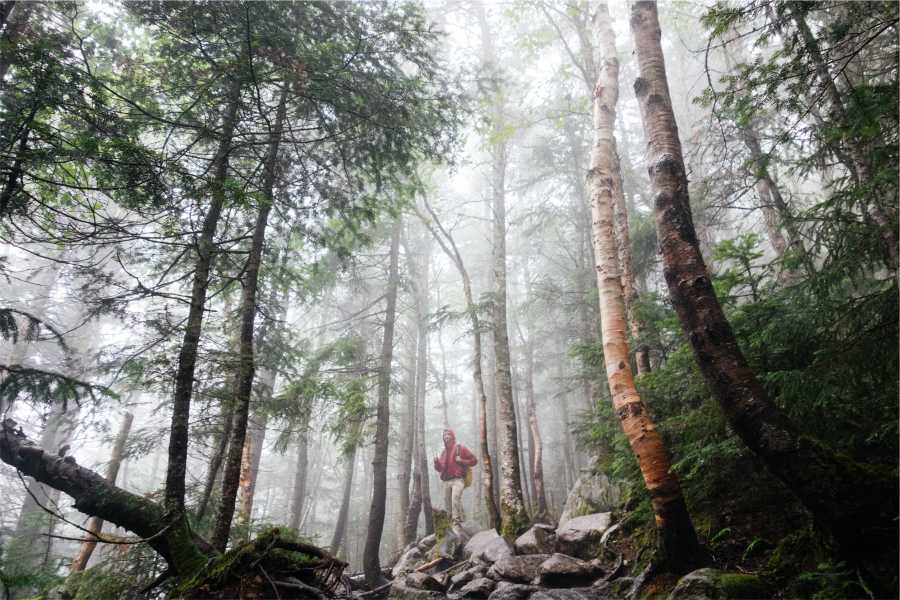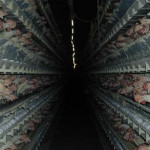We run our website the way we wished the whole internet worked: we provide high quality original content with no ads. We are funded solely by your direct support. Please consider supporting this project.

Christians and Creation Care
Image by Ali Inay
While the mustard seed of the Kingdom has been planted, it obviously hasn’t yet taken over the entire garden (Matt 13:31-42). We continue to live in an oppressed, corrupted world. We live in the tension between the “already” and the “not yet.” Not only this, but we who are the appointed landlords of God’s earth continue to live in rebellion against God and abuse our God-given authority over the earth. Our first mandate included taking care of the earth and animals, and I’m convinced this continues to be a foundational benchmark for how we’re doing as a human race. Unfortunately, this benchmark suggests we aren’t doing well at all.
For example, it’s well known that the welfare of the earth’s ecosystem significantly depends on tropical rain forests. Yet we are currently cutting down an area of tropical forest the size of Greece each year. Some estimate that up to 80% of the earth’s rain forests have already been lost, the majority in the last 100 years.
So too our apathy toward the environment as well as toward the suffering of the poor is largely to blame for the current clean-water crisis humanity faces. All told, approximately 10 million people die each year because their water is unclean.
Our care for animals is even more dismal than our care for the land, in my estimation. Largely due to our poor stewardship, thousands of species of animals have already become extinct or are being pushed to the brink of extinction. According to most experts, the population of over half of all animal species are in decline. Some estimate that in the next 30 years as many as one-fifth of all species living today will become extinct.
But in my opinion, the single most telling piece of evidence that shows how poorly we’re manifesting our call to care for animals is the creation of factory farms. More than 26 billion animals each year are forced to live in miserable, over-crowded warehouses, where there is absolutely nothing natural about their existence and where they are subjected to barbaric, painful, industrial procedures.
We are falling far short of the benchmark, and we, the earth, and animals are suffering as a result.
Being a follower of Jesus gives us no special wisdom to resolve the complex issues that we face regarding how we care for the earth and animals. The answers of the Kingdom are not found in voting one way or another, in boycotting certain industries, or various other activist approaches. While I’m not opposed to these activities, followers of Jesus are called to live in a way that reflects God’s original design for human dominion while revolting against everything that is incongruous with this design. Regardless of what scientific or political opinions may be in vogue, our call remains the same. We’re to manifest God’s care for the earth and demonstrate God’s merciful love toward animals.
This means that we must think critically about things like the energy we consume, the water we use and the waste we throw away. It means we must be informed about the effects our lifestyle choices—and eating choices—have on the earth and on animals.
Insofar as it is possible, we’re to manifest—in the present—the harmonious relation between God, humans, animals, and the earth that will characterize the cosmos when the Kingdom is fully come. This is a fundamental aspect of what it means to be part of a Kingdom that manifests the beauty of God’s original design for creation while revolting against everything that corrupts it.
—Adapted from The Myth of a Christian Religion, pages 148-151
Category: General
Tags: Animals, Creation, Kingdom Living, Myth of a Christian Religion
Topics: Creation Care
Related Reading

Voluntary Suffering and the Kingdom
In a post from two days ago, I wrote about the call to voluntary suffering for others as it is laid out in the New Testament. For the first three centuries of the church, Christians understood this call as they sought to follow Jesus’ example of forgoing the use of violence and expressing God’s self-sacrificial…

Contemplating Food Choices
As many of you know, Shelley and I have been vegetarians for the last eight years or so. This is a personal conviction, not a doctrine, but there are compelling reasons for adopting this lifestyle. The main conviction that led me to quit eating meat was that I felt I should never kill anything out of convenience…

Counter-Cultural Community
Jessica Lucia via Compfight On Tuesday Greg tweeted, “We inevitably acclimate to our environment. We can’t hope to be counter-cultural unless we’re embedded in a counter-cultural community.” Surely almost all Christian leaders would agree with this. But what does a counter-cultural community look like? How do we relate to one another and to the world…

The Bible, Government and Christian Anarchy
This “essay” contains my informal reflections on biblical texts that I believe support what some call “Christian Anarchy.” Consider it a very rough draft of a future project. I’ll argue that Kingdom people are called to pledge their allegiance to God alone, not to any nation, government, political party or ideology. Because Kingdom people are…

Costly Discipleship
Bob AuBuchon via Compfight Zack Hunt over at The American Jesus is doing a series of posts called “Blogmatics” in which he fleshes out the theological assumptions that inform his blog posts. A couple of days ago he discussed discipleship and the life that believers are called to in a post entitled Blogmatics: The Cost…

What Would You Do If Someone Attacked Your Family?
The New Testament commands us never to “repay evil with evil” but instead to “overcome evil with good” (Rom.12:17; cf. I Thess 5:15; I Pet 3:9). Jesus said, “Do not resist an evildoer. But if anyone strikes you on the right cheek, turn the other also”(Mt 5:39). He also said, “Love your enemies, do good…
